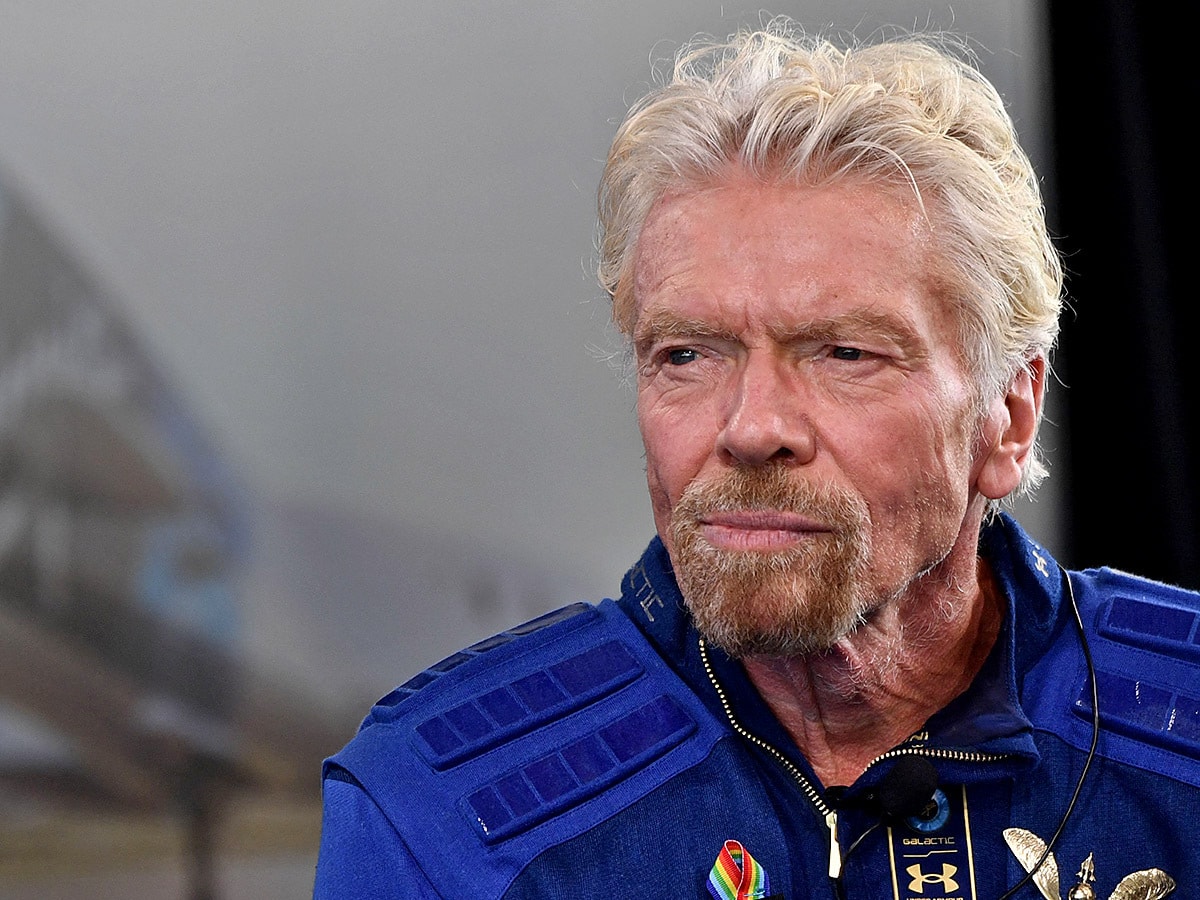Despite Virgin Galactic reporting a third-quarter loss of $129m, the stock jumped 2% in after-hours trading following the announcement on 3 November. The space tourism company says it’s still on track to launch its highly anticipated commercial service in 2023.
- Virgin Galactic’s losses were up by nearly 90% from the year-ago quarter
- Expanding manufacturing contracts with third-party businesses have been a growing factor in the company’s strategy
- The Procure Space ETF is up 6.75% over the past month
Virgin Galactic’s [SPCE] high-profile space tourism service has suffered numerous delays to its launch. On Thursday 3 November, the company posted a deeper loss in its third-quarter results than the prior year.
For the three months ended September, the company announced an adjusted EBITDA loss of $129m, compared to a loss of $68m for the equivalent period in 2021. It also reported a net loss of $0.55 per share for the quarter, missing the analyst consensus estimate a $0.41 loss per share, according to the Financial Times. However, the space tourism company beat analyst consensus estimates for its Q3 sales by 495%, posting $767,000 in revenue.
Shares in Virgin Galactic climbed more than 2% during after-hours trading following the release of the results. Nevertheless, the company’s stock has fallen 65.8% since the start of 2022. Its closing price of $4.58 on 3 November was 78.9% below the 52-week-high of $21.68 set almost one year ago on 9 November 2021.
Modifications and test flights coming soon
However, it wasn’t all bad news. Despite mounting losses, CEO Michael Colglazier said the company was on track to blast off its commercial flight service in Q2 2023, and highlighted the steps needed to get there.
“As we approach commercial service, we recognize the significance of getting back to the business of spaceflight,” said Colglazier regarding the company’s near-term ambitions.
Virgin’s top- and bottom-line Q3 figures were no doubt impacted by ongoing setbacks to its space tourism goals. The company has been involved in an ongoing programme to refurbish and upgrade its existing vehicles, with modifications of both its VMS Eve and VSS Unity models set to complete by the year’s end in preparation “multiple test flights scheduled in the coming months.”
In its report, Virgin Galactic reported $1.1bn in cash and cash equivalents as of 30 September. In August it completed a common stock offering that raised $100m through the issuance of 15.6 million shares.
Contracts for manufacturing
Virgin Galactic has also made progress on its third-party manufacturing strategy. The company also announced two companies due to manufacture parts for its Delta spaceship beginning in 2023. “With Aurora Flight Sciences building our next generation motherships, and the selection of experienced manufacturers, Bell Textron and Qarbon Aerospace, to help build our Delta Class Spaceships, we have our primary suppliers in place to expand our fleet and support our long-term growth,” said Colglazier.
Its $89m contract with Aurora, a subsidiary of Boeing [BA], was announced in July, and covers the manufacturing of two motherships, which will facilitate spaceships in reaching the release altitude of approximately 50,000 feet. On the same day as the results, Virgin Galactic announced its ambitions to “produce up to six new Delta Class ships per year”, which its contracts with Bell Textron and Qarbon Aerospace may well facilitate.
In its third quart results, Virgin forecast free cash flow for the next quarter of the year to be in the range of $120m to $130m.
Funds in focus: Procure Space ETF
A number of space-related companies have debuted on the stock market via special purpose acquisition companies (SPACs) over the last few years, including Virgin Galactic’s own sister company, Virgin Orbit [VORB]. However, space-themed funds have taken a tumble in 2022, as inflation flies high.
Virgin Galactic is held in space-themed funds including the Procure Space ETF [UFO], which has the largest exposure to SPCE shares with a weighting of 3.59%. The fund is down 25.3% in the year-to-date, but has risen 6.75% over the past month.
Other funds holding SPCE include the SPDR S&P Aerospace & Defense ETF [XAR], where it has a weighting of 2.97% as of 3 November. Year-to-date the ETF has fallen by 10.1%, but has risen by the same amount over the past month.
Disclaimer Past performance is not a reliable indicator of future results.
CMC Markets is an execution-only service provider. The material (whether or not it states any opinions) is for general information purposes only, and does not take into account your personal circumstances or objectives. Nothing in this material is (or should be considered to be) financial, investment or other advice on which reliance should be placed. No opinion given in the material constitutes a recommendation by CMC Markets or the author that any particular investment, security, transaction or investment strategy is suitable for any specific person.
The material has not been prepared in accordance with legal requirements designed to promote the independence of investment research. Although we are not specifically prevented from dealing before providing this material, we do not seek to take advantage of the material prior to its dissemination.
CMC Markets does not endorse or offer opinion on the trading strategies used by the author. Their trading strategies do not guarantee any return and CMC Markets shall not be held responsible for any loss that you may incur, either directly or indirectly, arising from any investment based on any information contained herein.
*Tax treatment depends on individual circumstances and can change or may differ in a jurisdiction other than the UK.
Continue reading for FREE
- Includes free newsletter updates, unsubscribe anytime. Privacy policy





